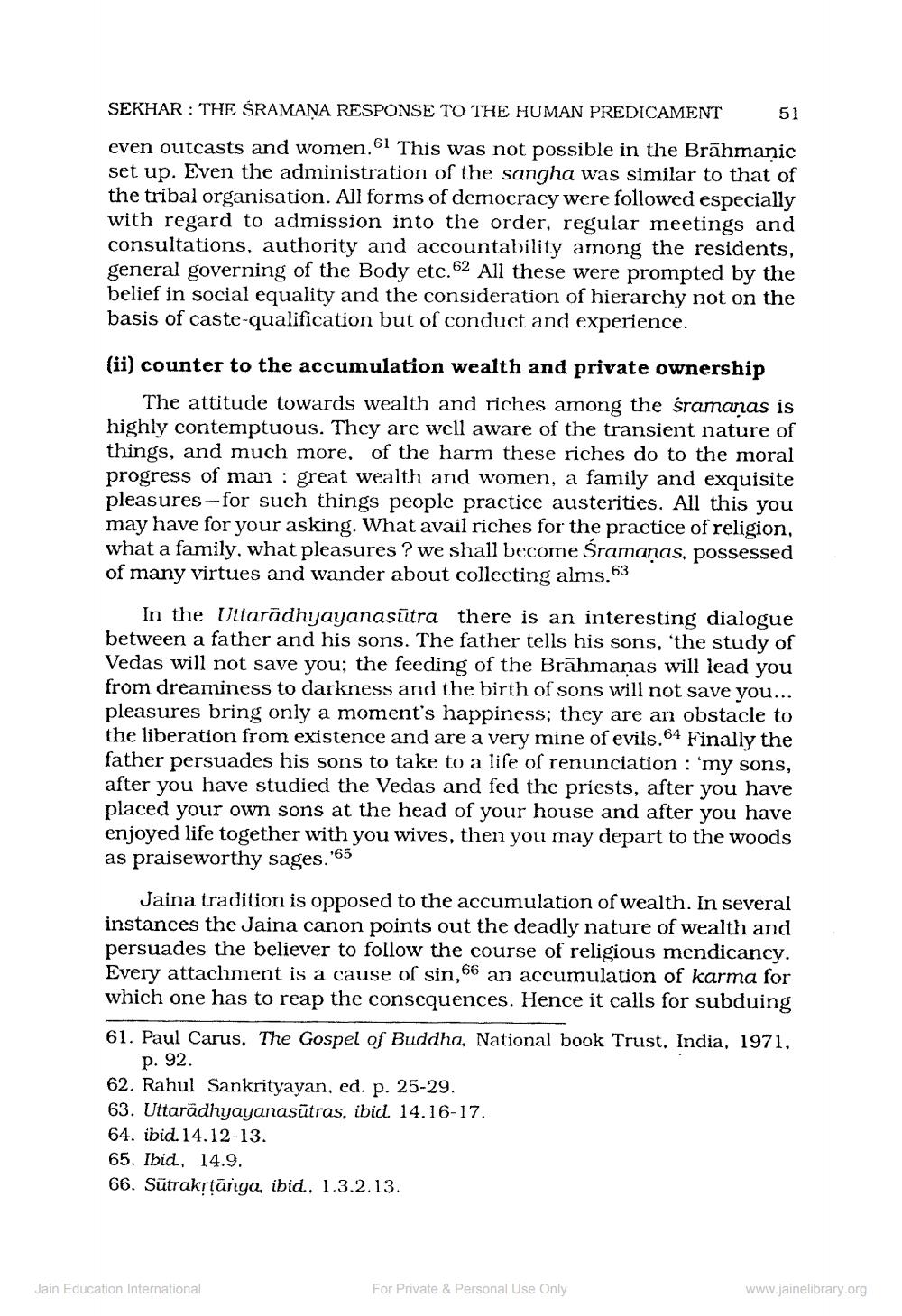________________
SEKHAR : THE ŚRAMANA RESPONSE TO THE HUMAN PREDICAMENT 51 even outcasts and women.61 This was not possible in the Brāhmanic set up. Even the administration of the sangha was similar to that of the tribal organisation. All forms of democracy were followed especially with regard to admission into the order, regular meetings and consultations, authority and accountability among the residents, general governing of the Body etc.62 All these were prompted by the belief in social equality and the consideration of hierarchy not on the basis of caste-qualification but of conduct and experience.
(ii) counter to the accumulation wealth and private ownership
The attitude towards wealth and riches among the śramanas is highly contemptuous. They are well aware of the transient nature of things, and much more, of the harm these riches do to the moral progress of man : great wealth and women, a family and exquisite pleasures-for such things people practice austerities. All this you may have for your asking. What avail riches for the practice of religion, what a family, what pleasures ? we shall become Šramanas, possessed of many virtues and wander about collecting alms.63
In the Uttaradhyayanasūtra there is an interesting dialogue between a father and his sons. The father tells his sons, the study of Vedas will not save you; the feeding of the Brahmanas will lead you from dreaminess to darkness and the birth of sons will not save you... pleasures bring only a moment's happiness; they are an obstacle to the liberation from existence and are a very mine of evils.64 Finally the father persuades his sons to take to a life of renunciation : 'my sons, after you have studied the Vedas and fed the priests, after you have placed your own sons at the head of your house and after you have enjoyed life together with you wives, then you may depart to the woods as praiseworthy sages. '65
Jaina tradition is opposed to the accumulation of wealth. In several instances the Jaina canon points out the deadly nature of wealth and persuades the believer to follow the course of religious mendicancy. Every attachment is a cause of sin, 66 an accumulation of karma for which one has to reap the consequences. Hence it calls for subduing
61. Paul Carus, The Gospel of Buddha, National book Trust, India, 1971,
p. 92. 62. Rahul Sankrityayan, ed. p. 25-29. 63. Uttaradhyayanasūtras, ibid. 14.16-17. 64. ibid. 14.12-13. 65. Ibid., 14.9. 66. Sütrakrtānga, ibid., 1.3.2.13.
Jain Education International
For Private & Personal Use Only
www.jainelibrary.org




